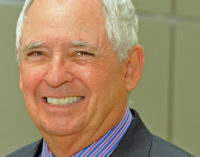Here’s an inside look at what’s been making all those headlines the last few years, and maybe what might be making headlines in the next few years.
Basic Members


With the final dust comfortably settling on this year’s tax season, we can know begin to put together the pieces of this new reality that may have plan sponsors and their service providers rethinking their long-held strategies.

Looking for an equal and opposite reaction for those intent on continued delays in saving for retirement? This article reveals 5 effective counter punches.

There’s no question 401k plan sponsors know they need to up their game when it comes to employee education programs. According to one study, 80% of education programs on 401k offerings for employees are ineffective. Plan sponsors today seek solutions to better engage employees.

There are two strategic paths to use when it comes reducing liability. One approach occurs after the fact – after the target date funds are already in place. The other approach takes place before the target date funds are even placed on the 401k plan menu. Which is more reliable?

“The ruling by the First Circuit in the Putnam case further increases focus on trust law when determining the scope of fiduciary responsibility under ERISA. Prudent practice already draws on trust law and sometimes prudent practice is ahead of the courts.”

When retirement industry professionals talk about the impact of the 2006 Pension Protection Act, you might be surprised that this is what they conclude.

When it comes to the definitive fiduciary, no one can play that role better than the parent. Parents constantly look out for their children. They want to give their children the best possible advantage to live a better life. Why not give them the ultimate head-start?

The Tax Cuts and Jobs Act preserved the sanctity of the treasured retirement contribution deduction – it even made it more important – but it also did a few things that might surprise some business owners.










